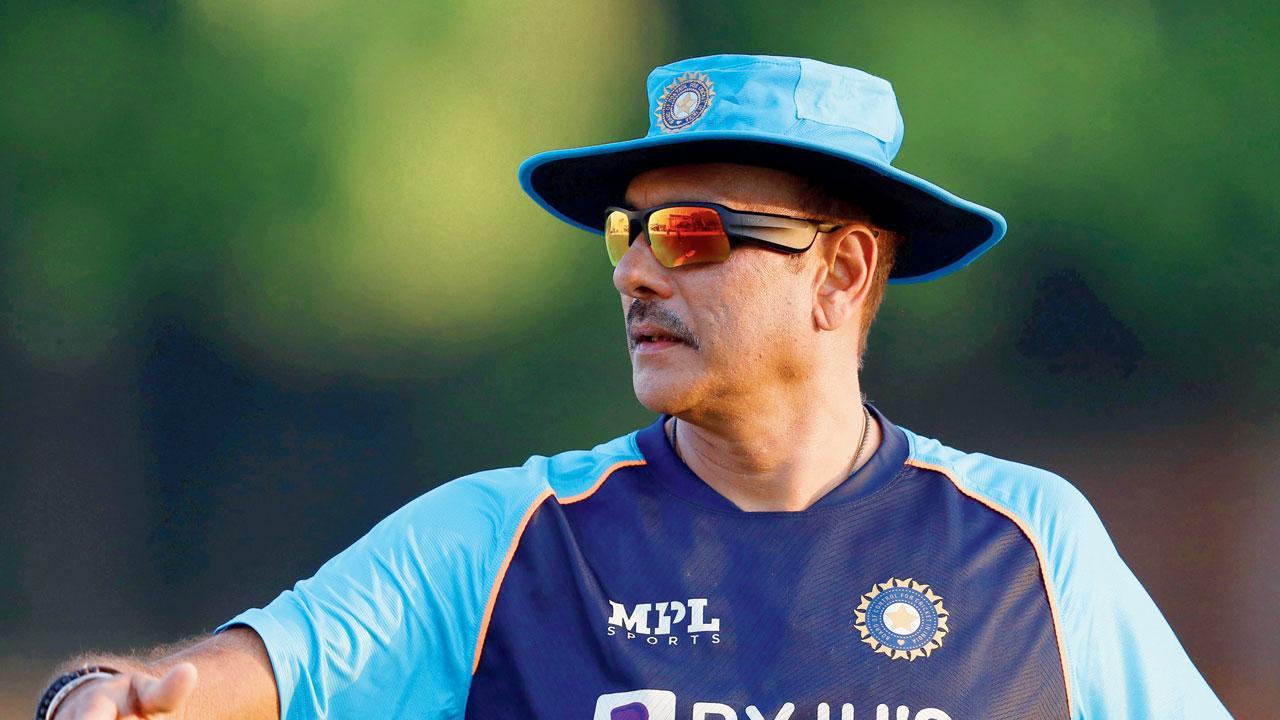Love him, hate him, troll him, but at the end of the day, the former captain has to be rated as the most successful Indian coach of teams

India have been fortunate to have some good coaches and Shastri is undoubtedly the most successful Indian coach
 On a pleasant November 2000 evening in Indore, Raj Singh Dungarpur ended each description of cricket managers/coaches who served India from the previous decade, with the words, “...but no coach.”
On a pleasant November 2000 evening in Indore, Raj Singh Dungarpur ended each description of cricket managers/coaches who served India from the previous decade, with the words, “...but no coach.”
ADVERTISEMENT
He touched upon their acts of brilliance and bravado when they played for India in the 1970s and 1980s. But when it came to qualifying them as coaches, Raj Singh lowered his volume, tried hard not to sound rude and opined that they all fell short.
Raj Singh, by 2000, had ended all his significant stints—manager, chief selector and BCCI president. He was now happy to be an influencer. A little before that Indore-hosted National Cricket Academy versus Zimbabwe game in November 2000, Raj Singh played an instrumental hand in John Wright being appointed India’s first foreign coach.
India have been fortunate to have some good coaches and Shastri is undoubtedly the most successful Indian coach. He took over a fine side and made it a unit that was feared by the best of opposition teams. Not every move clicked, not every series was won handsomely and some selections of the playing XI, made in consultation with the captain and vice-versa, were baffling. But Shastri made his team feel 10 feet tall; something that he did during the few matches he captained India in. If some of the players felt comfortable in an imaginary Superman’s suit, Shastri had provided the material for it.
The playing surface didn’t matter to him and save that reported incident about him not being pleased with the Wankhede surface dished out by ex-Mumbai captain Sudhir Naik for the fifth and final ODI against South Africa in 2015, Shastri was never heard slamming pitches.
He made big statements about his side’s ability and quality to go down as one of, if not the best touring Indian teams. He got flak for that—trolled on social media and some of India’s former greats cringed. And it appeared justified, because the coach’s headline-making comments were made at a time when India hadn’t won a Test series in Australia and South Africa.
“If you look at the last three years, we have won nine matches overseas and three series [v West Indies and two in Sri Lanka]. I can’t see any other Indian team in the last 15-20 years that has had the same run in such a short time and you have had some great players playing in those series. So the promise is there, and it’s just about getting tougher mentally,” Shastri had remarked. Mind you, this was said not after a win, but a loss to England in the fourth Test at Southampton in 2018.
When I asked him about that comment, he said, tongue in cheek, that he should have mentioned a lot more than 15-20 years. India have yet to win a series in South Africa and their last series triumph in New Zealand was in 2009, which means they have failed to cross the hurdle in two countries which throw up challenging conditions.
Adding to the list of disappointments is the Shastri-guided teams’ inability to win an ICC event; two this year—the World Test Championship final against New Zealand and the T20 World Cup. For all the killer instinct they displayed from time to time, they failed to deliver the knockout punch.
However, India’s victories in all formats under Shastri’s watch in Australia are as meritorious as they come. Not many teams in history—like the West Indies who gave invincibility a great name in the 1970s and 1980s—have won two consecutive Test series in Australia.
Shastri may have endured more bumps than his strong-willed team would bargain for, but the fact is that India won a lot more than they lost with him in charge in all formats. Even in this age of high and often unrealistic expectations, this is commendable and Shastri has played his role in them believing that they can win from any position.
Had his former team manager and chairman of selectors Raj Singh been alive today, he would have highlighted his cricketing qualities like he did that evening in Indore.
Doubtless, “…but no coach” would have been replaced with “some coach.”
mid-day’s group sports editor Clayton Murzello is a purist with an open stance. He tweets @ClaytonMurzello
Send your feedback to mailbag@mid-day.com
The views expressed in this column are the individual’s and don’t represent those of the paper.
 Subscribe today by clicking the link and stay updated with the latest news!" Click here!
Subscribe today by clicking the link and stay updated with the latest news!" Click here!







